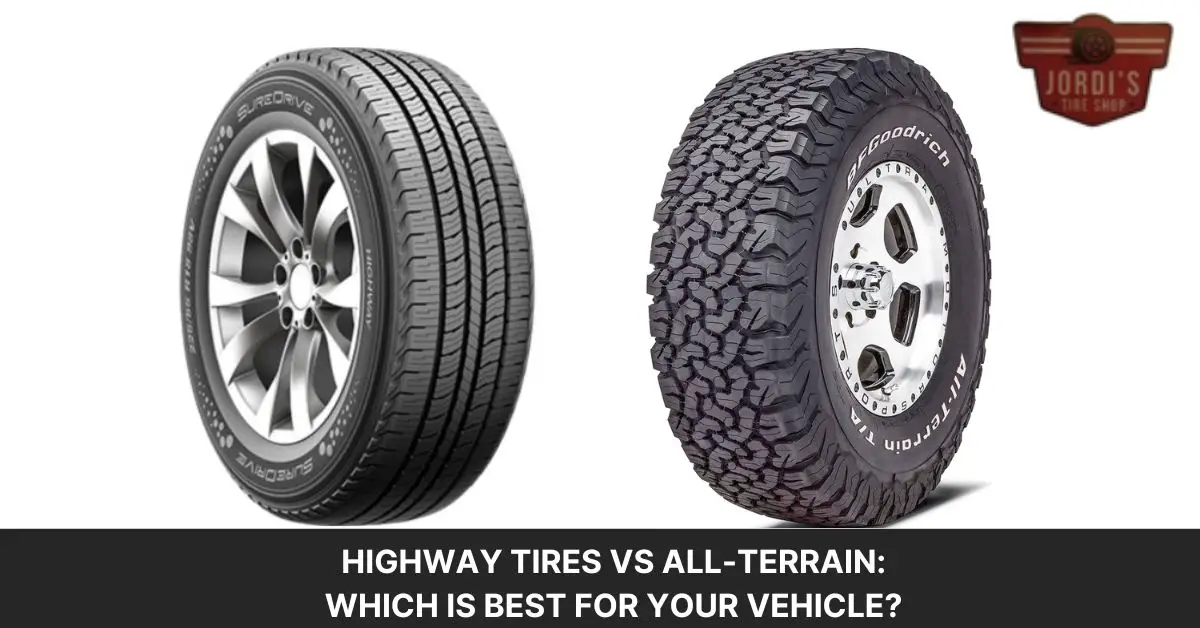When we hit the road, whether it’s the smooth highways that stretch across the country or the rugged trails that take us on adventures unknown, the choice of tires becomes crucial. It’s a decision that can affect not just the performance of our vehicles, but also our safety and comfort. That’s why today, we’re diving into the world of highway tires versus all-terrain tires, a topic that’s as varied and complex as the roads we travel.
Choosing between highway tires and all-terrain tires isn’t just about where we’re going—it’s about matching our journey to the right kind of support. Highway tires offer a smooth, quiet ride on paved roads, making them perfect for those long commutes and road trips. On the other hand, all-terrain tires are built to tackle a variety of surfaces, from mud and gravel to snow and ice, offering versatility for those who crave adventure. Let’s explore what sets these two tire types apart and how we can make the best choice for our driving needs.
Understanding Highway Tires
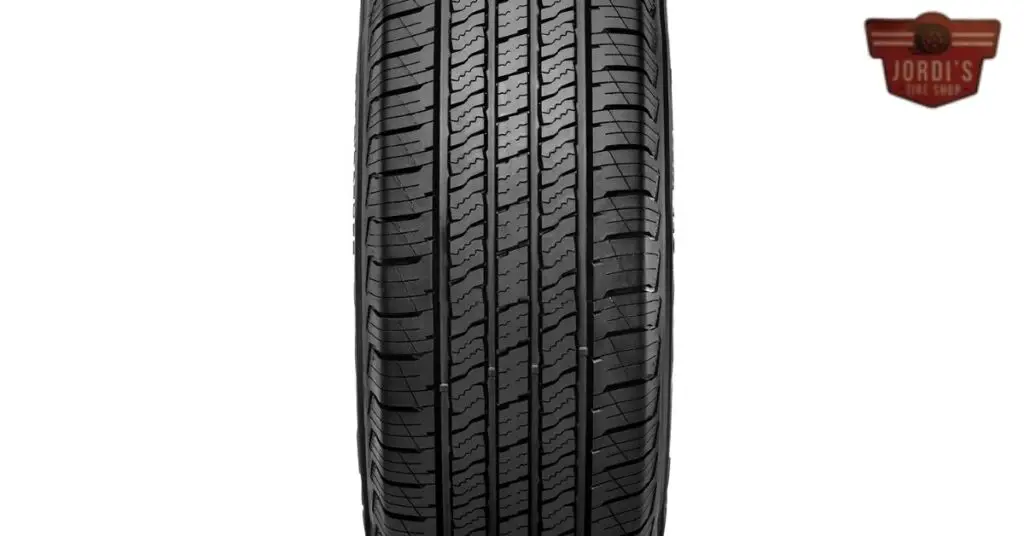
After exploring the vast differences between highway and all-terrain tires, it’s essential to delve deeper into what sets highway tires apart. These tires are engineered for comfort, efficiency, and performance on paved roads. They’re the go-to choice for drivers who spend most of their time on smooth surfaces, where the key priorities include fuel economy, a quiet ride, and longevity.
Highway tires feature a simpler tread design compared to their all-terrain counterparts. This design minimizes road noise and provides a more comfortable ride, making long commutes and road trips more enjoyable. Their tread patterns are specifically crafted to offer better stability and handling at higher speeds on paved surfaces. Moreover, these tires tend to have a higher mileage rating, indicating they’ll last longer under typical road conditions.
Fuel efficiency is another significant advantage of highway tires. Due to their smoother tread patterns and compounds designed to reduce rolling resistance, vehicles equipped with highway tires can cover more miles per gallon than those fitted with more aggressive tires meant for off-road conditions. This aspect not only benefits the environment by burning less fuel but also saves money on gas in the long run.
While highway tires excel on paved roads, their performance on rough terrains, like mud or gravel, is limited. Their tread patterns don’t provide the same level of grip and traction as all-terrain tires in such conditions. Therefore, if our journey frequently takes us off the beaten path, we might find all-terrain tires more suitable.
When our driving adventures primarily unfold on highways and city streets, highway tires stand out as the ideal choice. They offer a blend of efficiency, comfort, and longevity that enhances the driving experience on paved roads.
Exploring All-Terrain Tires
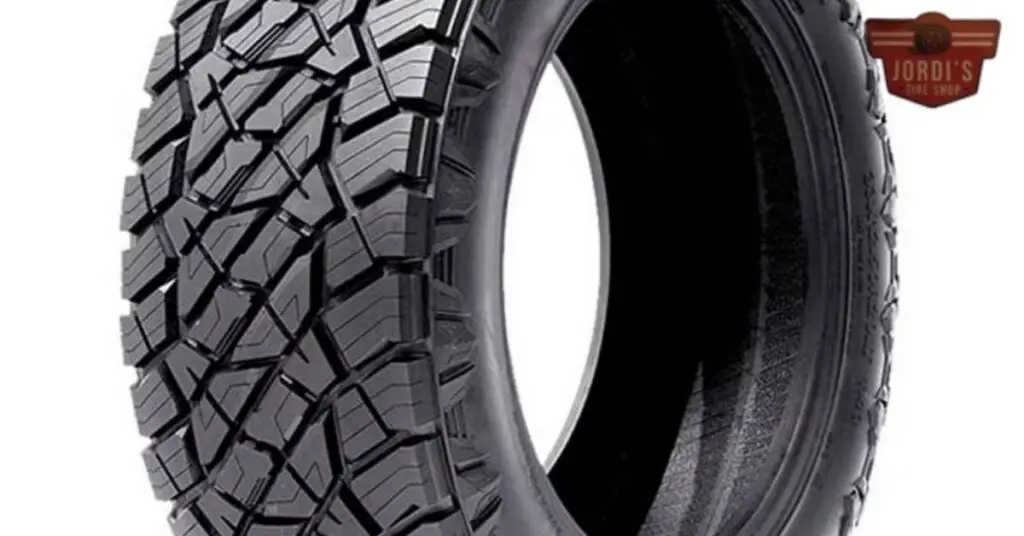
Transitioning from the paved comfort of highway tires, we delve into the world of all-terrain tires, known for their versatility and rugged performance across various landscapes. Unlike their highway counterparts, all-terrain tires are designed to tackle a wider range of surfaces, from muddy trails to rocky paths, without sacrificing too much comfort on paved roads.
Featuring a more aggressive tread pattern, all-terrain tires ensure improved grip and traction on off-road conditions. These treads are deeper and wider, allowing for better mud, sand, and snow evacuation. This design detail makes all-terrain tires a suitable option for drivers who venture off the beaten path but still spend a significant amount of time on highways and city streets.
Durability is another hallmark of all-terrain tires. Constructed with tougher rubber compounds, they can withstand the rigors of off-road driving, resisting cuts, abrasions, and punctures more effectively than highway tires. This makes them an ideal choice for vehicles that frequently transition between different terrains.
However, it’s important to note that the versatility of all-terrain tires comes with a few trade-offs. Though they perform admirably across various surfaces, they might not offer the same level of fuel efficiency as highway tires due to the increased rolling resistance. Similarly, the ride might not be as quiet or smooth, a direct result of their aggressive tread pattern.
All-terrain tires present a balanced solution for drivers seeking good performance both on and off the road. They ensure safety and reliability in rough terrains while offering commendable performance on paved surfaces. For individuals who enjoy weekend adventures in the great outdoors but need practicality during the week, all-terrain tires offer the best of both worlds.
Highway Tires Vs All-Terrain: Performance Comparison
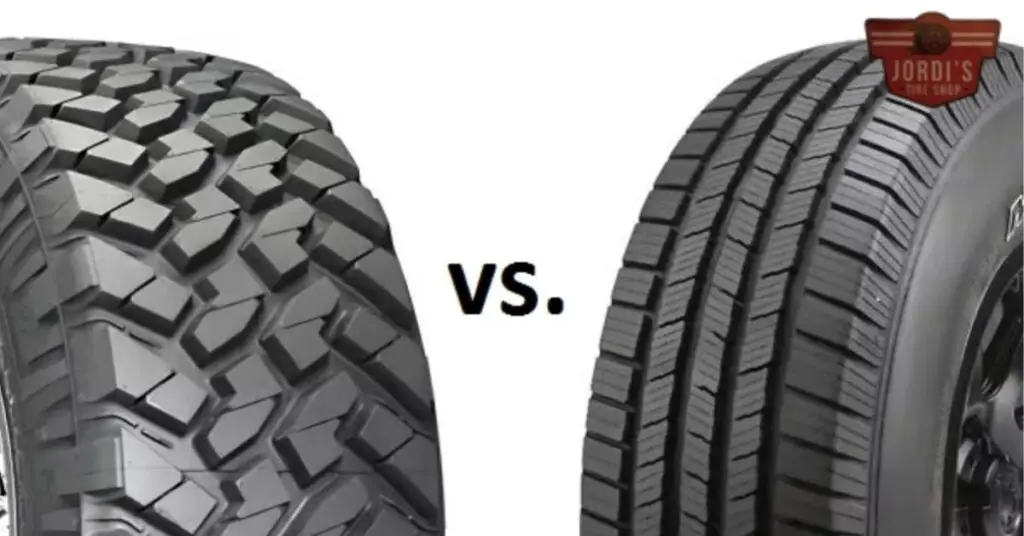
Following our exploration of all-terrain tires, let’s dive into a performance comparison between highway tires and all-terrain tires. This comparison hinges on several key aspects: tread design, durability, comfort, and fuel efficiency.
Tread Design and Traction
- Highway Tires: Feature a simpler tread design optimized for paved roads. This ensures a smoother interaction with asphalt, leading to enhanced stability and traction during high-speed driving. The tread compounds are usually softer, providing better grip on dry and wet roads.
- All-Terrain Tires: Boast an aggressive tread pattern with deeper voids and thicker lugs. This design offers superior traction on off-road conditions such as mud, gravel, and even snow. However, on highways, the broader tread pattern can reduce surface contact, slightly compromising grip compared to highway tires.
Durability and Wear
- Highway Tires: Constructed with compounds meant to resist wear over long distances on smooth surfaces. They’ll often have a longer tread life when used primarily on highways but can wear faster if frequently driven on rough or unsealed roads.
- All-Terrain Tires: Made with tougher rubber compounds and reinforced sidewalls to withstand the rigors of off-road use. This rugged construction contributes to longer wear life in varied conditions, although they may not last as long on highways due to the aggressive tread.
Comfort and Noise
- Highway Tires: Provide a quieter, more comfortable ride on paved roads due to their tread design. The lack of deep grooves and aggressive patterns means there’s less noise generated at high speeds.
- All-Terrain Tires: The deeper tread patterns and larger blocks can produce more road noise, especially on highways. The ride can also feel rougher on paved surfaces, a trade-off for their off-road versatility.
- Highway Tires: Generally more fuel-efficient thanks to their smoother tread pattern, which reduces rolling resistance. This is ideal for drivers who prioritize economy and mostly drive on paved roads.
- All-Terrain Tires: The rugged tread design increases rolling resistance, which can reduce fuel efficiency. This is a consideration for drivers who are willing to trade some fuel economy for the ability to navigate a wider range of terrains.
Selecting the Right Tire for Your Vehicle
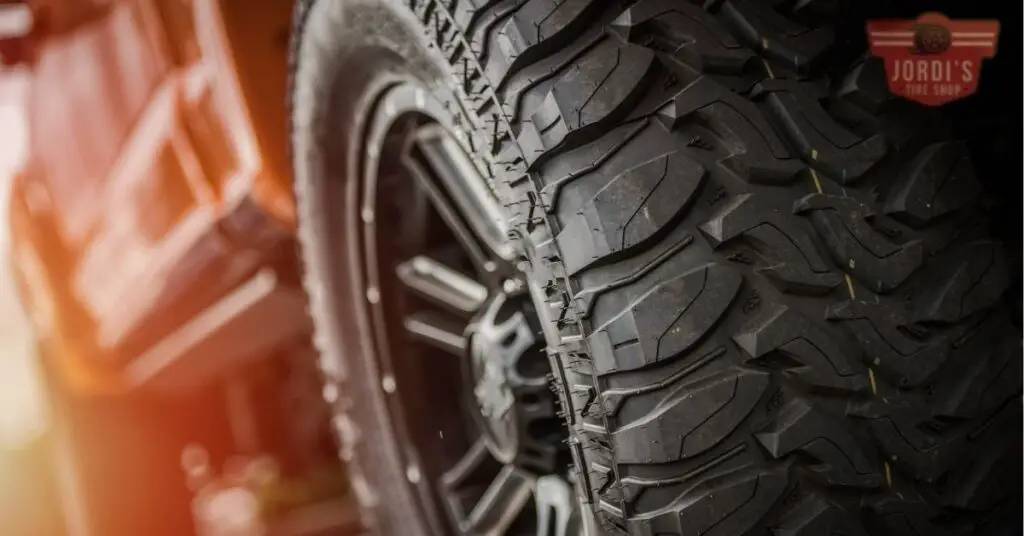
Deciding between highway tires and all-terrain tires involves considering your main driving environments and vehicle requirements. Weighing the benefits of each tire type ensures you make an informed choice tailored to your driving habits and preferences. Here, we outline key factors to guide you in selecting the right tire for your vehicle.
- Driving Conditions: If you spend most of your time on paved roads and seek optimal fuel efficiency, highway tires are the go-to option. Their design caters to smooth road surfaces, offering a comfortable and quiet ride. Conversely, if your adventures often take you off the beaten path or you regularly encounter rough terrains, all-terrain tires are your best bet. They provide the versatility and durability needed for challenging conditions.
- Performance Needs: Evaluate what performance characteristics are most important to you. Highway tires excel in stability and traction at higher speeds on roads, making them suitable for everyday use in urban or suburban settings. On the other hand, all-terrain tires are engineered to tackle a variety of surfaces, from rocky paths to muddy trails, making them ideal for outdoor enthusiasts who demand robust off-road capabilities.
- Tread Design and Durability: Consider the tread design and expected tire life. Highway tires generally feature a simpler tread pattern that minimizes wear on roads, extending their longevity. All-terrain tires, with their aggressive tread patterns, are designed to resist damage from off-road hazards but may wear quicker on pavement due to their heavier tread.
- Comfort and Noise: For drivers prioritizing a quiet and smooth driving experience, highway tires stand out. They reduce road noise and offer superior ride comfort on paved surfaces. All-terrain tires, with their rugged tread, may produce more noise and offer a firmer ride, which could be a trade-off for their off-road adaptability.
- Budget Considerations: Finally, assess how your tire choice fits your budget. Highway tires typically cost less than all-terrain tires and may offer longer tread life under normal road driving conditions, potentially saving money over time. However, the initial investment in all-terrain tires might justify their cost if you require a tire that performs reliably in diverse driving conditions.
Considering these factors, you’ll be equipped to choose tires that not only match your vehicle but also align with your driving lifestyle, ensuring satisfaction and safety on the road.
Conclusion
We’ve walked through the essentials of choosing the right tire for your ride and it’s clear that the decision boils down to your personal driving needs and preferences. Whether you’re cruising the highways or tackling rugged terrains, there’s a tire out there that’s perfect for you. Remember to weigh the pros and cons of each tire type against how and where you drive. It’s not just about getting from point A to B; it’s about enjoying the journey safely and efficiently. So take your time, consider your options, and let’s make every drive a great one.
Related Posts:
- Do All Terrain Tires Affect Gas Mileage? Exploring the Relationship Between Tire Type and Fuel Efficiency
- Do All Terrain Tires Lower MPG? Exploring the Impact of Off-Road Tires on Fuel Efficiency
- Do All Terrain Tires Waste More Gas? A Comprehensive Analysis
- Highway Tires vs All-Terrain: Which is Best for Your Vehicle?
- Most Fuel Efficient All Terrain Tire: Top Picks for Eco-Friendly Drivers

